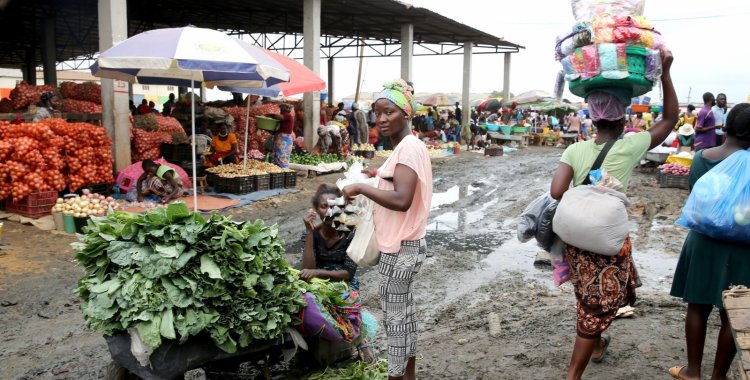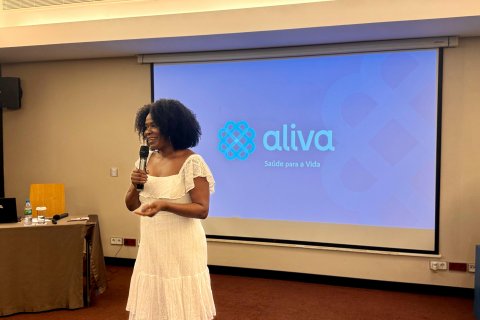In Luanda they are everywhere and they sell a little bit of everything, from fruit to peanut bags, bottles of water, lunch boxes, mobile phone chargers, car accessories, clothes, maps of Angola, an infinity of goods that carry the day, walking kilometers in search of customers.
In the 'zunga' (street sales) mainly women who try to support the family participate, with incomes that sometimes reach only 500 kwanzas a day, is outraged by José António Kassoma, president of the association that represents 36,000 street vendors and fairgrounds in seven provinces.
In Angola, almost 80 percent of workers have an informal job, a percentage that increases to 88 percent among women, while the unemployment rate is around 30 percent, and reaches 57 percent among the youngest (15 and 24 years old), according to data released in August by the National Statistics Institute.
José António Kassoma warns that the situation is critical and asks the executive for solutions, regretting that the successive requests for an audience with the President, João Lourenço, have not been answered.
"We are a class with many people, we represent the largest of the population and the most vulnerable and this poorest layer is getting excited because the policies do not include them", he laments.
The official says that poverty and social exclusion have worsened among families that depend on zungueiras, many of whom have no place to leave their children.
"Children are left alone and all day without eating. They eat at night when they bring some kwanzas and if the inspector didn't stay with the business, classes have now started and we have 4000 who were out of school because they couldn't find a place in public schools", denounced.
Excluded from social policies, the zungueiras are willing to support the demonstrations against the executive "because they don't see a solution to their problems on the part of those who are governing", he warns.
"We are sending this request for help, with great urgency, because in Angola there could be a war that will not be of weapons, it will be social", added Kassoma.
"Many come to us with tears in their eyes, it's a total frustration", vents the associative leader, stating that there has been, since 2016, an attempt to dialogue with the executive to try to mitigate "this social drama", but without practical results.
According to the official, proposals were presented to develop family farming projects in the provinces – where many of those trying to survive in Luanda come from – but which did not obtain support or failed because "the ministry only wanted to discuss technical aspects".
"Young people who are 'zungar' could be in agriculture, producing food that can help reduce the prices of the basic food basket, but when it comes to implementing such programs things don't work", he underlined.
He also spared no criticism of the PREI program (Program for Reconversion of the Informal Economy, launched in November 2021), which "always benefits the same ones, those who already have funding".
José António Kassoma complained that the programs are poorly managed by municipal administrators who, "when choosing the beneficiaries, they go to get their cousin, nephew, the party" and the money "never reaches those who are most vulnerable".
"The poor, the 'zungueiros', the moms who walk in the markets with business from 2000 do not receive any financing. The PREI gives money to entrepreneurs who already have capital", he points out.
Until the 8th of August, the date of the latest available data, the PREI formalized 246,189 operators, some of which benefit from credits to strengthen business.
Kassoma says, however, that the vendors have essentially depended on themselves, gathering contributions that are then delivered in rotation to each of the participants (a system known as 'kixikila') and laments that "the ruling party denies sitting with the association".
Therefore, street vendors plan to meet soon at the Catinton market (Luanda) to appeal to international solidarity, "so that the world can look at Angola and see this suffering".
The objective is to listen to the concerns of the class and pressure the executive to speak out and create, together with the association, policies to solve the problems of poverty and social exclusion.







